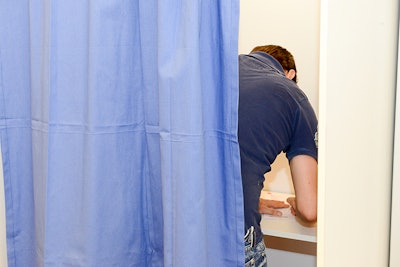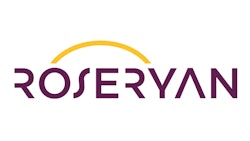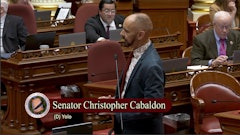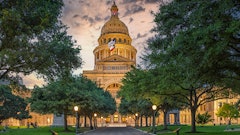
New Jersians voted during the Nov. 7 elections in favor of cannabis-proponent Phil Murphy as New Jersey’s new governor.
Murphy’s victory is a win for the state’s marijuana industry, as he has vowed to legalize recreational cannabis for adults 21 and older and has promised to sign a legalization bill into law within the first 100 days of his term, according to a NJ.com report.
Leaders in the Democratic-led state legislature are also ready to push through legislation to legalize adult-use for adults 21 and older, NJ.com reported. Murphy has said he will impose three new taxes to help pay for some of the initiatives in his agenda, per NJ.com, and the sales tax from legalized marijuana is one of them.
Michigan
Detroit voters approved two ballot questions about marijuana and eased regulations on medical marijuana facilities in the city.
Proposal A, the Detroit Medical Marijuana Facilities Ordinance, amends the city code to opt in to the Michigan Medical Marijuana Facilities Act, and Proposal B, the Detroit Medical Marijuana Zoning Ordinance, establishes city zoning rules for medical marijuana facilities that are consistent with the Medical Marijuana Facilities Licensing Act.
In March 2016, the city enacted an ordinance that required proposed medical marijuana caregiver centers (MMCCs) to apply for a license to operate, and it mandated that they locate 1,000 feet from child care centers, schools, other MMCCs, religious institutions and more. The Detroit Free Press reported that government officials have shut down 186 of the Detroit’s 283 medical marijuana dispensaries since the ordinance took effect.
The new proposals ease the regulations set forth in that ordinance by eliminating the city’s Board of Zoning Appeals’ authority to review dispensary applications, allowing dispensaries to open within 500 feet of another dispensary and within 500 feet of religious institutions, and eliminating a requirement that the city hold public hearings and request public comment on proposals to open dispensaries.
Virginia
Virgina’s new governor, Democrat Ralph Northam, is a supporter of decriminalization and submitted a letter to the Virginia State Crime Commission in August calling for decriminalization, according to WTKR. The State Crime Commission announced they would study decriminalization, WTKR reports.
State Senate Majority Leader Tommy Norment plans to introduce state legislation next year to decriminalize marijuana possession for first-time offenders, per The Virginian Pilot, which Northam is likely to support.
California
All seven local marijuana business tax measures on the ballot in California were approved by voters.
Rio Dell in Humboldt County approved a measure to tax marijuana businesses at a maximum tax rate of $5 per square foot of growing space for cultivators or 10 percent of a business’s gross receipts, with initial rates of $2 per square foot and 2 percent of a business’s gross receipts. There are limitations on how much the tax could be increased by the city council in a year.
Riverside County’s Palm Springs passed a proposal that applies the existing tax rate on medical marijuana collectives to all marijuana businesses to adjust for statewide legalization. The maximum tax rate is 15 percent of gross receipts or $10 per square foot for cultivation sites, and the current rate is 10 percent of gross receipts.
Pacifica in San Mateo County passed a tax on local marijuana businesses at an initial rate of 6 percent of gross receipts with a maximum rate of 10 percent, a tax voters had to approve to authorize marijuana operations in the city.
Sonoma County’s city of Cotati approved an additional tax on the one marijuana dispensary allowed in the city and any other marijuana businesses authorized in the future. Cultivation businesses will be taxed at $5 per square foot or 2 percent of receipts with a maximum of $25 per square foot or 8 percent of receipts. Other businesses will be taxed at various other rates starting at 1 percent for manufacturers, 3 percent for recreational retailers and 0 percent for distributors; each of those businesses can be taxed up to 8 percent.
Modesto in Stanislaus County approved a tax on marijuana businesses at a maximum rate of 10 percent. The tax revenue will go to the city’s general fund.
Finally, Tulare County’s Farmersville and Woodlake both passed measures approving a tax on marijuana businesses at a maximum rate of 10 percent of gross receipts or $25 per square foot with revenue deposited into the city’s general fund and no automatic sunset date.
New York
New York voters defeated Proposition 1, the Constitutional Convention Question, which supported holding a constitutional convention to develop and propose changes to the state constitution that constituents would vote on during the 2019 election. The question is asked every 20 years to determine whether delegates should convene to amend the constitution and take up issues that have been rejected by the state legislature, per the New York Post, and theoretically could have allowed the state to tackle the issue of marijuana legalization.
Top image: © Stefano Ember | Dreamstime.com






















